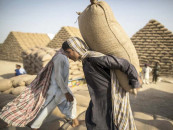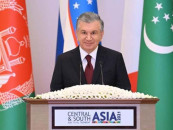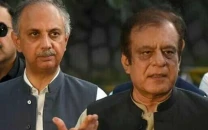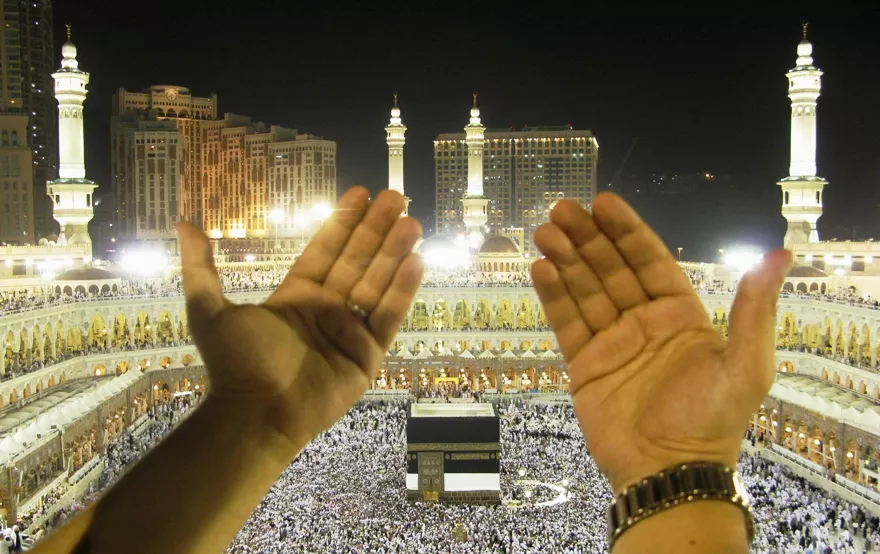Omar Ayub blames Bajwa for TTP talks
Omar Ayub blames Bajwa for TTP talks
1725362185-0/Untitled-design-(11)1725362185-0-640x480.webp)
Opposition Leader in the National Assembly Omar Ayub said on Saturday that negotiations with the banned Tehreek-e-Taliban Pakistan (TTP) were initiated on the insistence of former army chief General (retd) Qamar Javed Bajwa, distancing the Pakistan Tehreek-e-Insaf (PTI) from the controversial decision.
Speaking at a news conference alongside several party leaders, the opposition leader recalled the former army chief's assertion that every issue could be resolved through dialogue. He revealed that the National Security Committee (NSC) had discussed the need for negotiations with the TTP.
"This was not the PTI's decision," he asserted. Ayub's remarks came a day after Director General Inter-Services Public Relations (ISPR) Lt. Gen Ahmed Sharif Chaudhry held the PTI government responsible for a resurgence in terrorism, alleging that decisions made during its tenure, including talks with the TTP, had jeopardised national security.
In a strongly-worded statement on Friday, the ISPR chief criticised the policies of the PTI-led government in 2021, accusing it of enabling the reintegration of terrorists.
Chaudhry had said that the entire nation, particularly the citizens of Khyber Pakhtunkhwa, was paying the price for the resettlement and rehabilitation of terrorists through talks initiated by the then government.
The military, he said, had broken the TTP's back before these talks gave the group renewed strength. Referring to the TTP as "Fitna Al Khawarij," the ISPR DG questioned, "Who provided the terrorists strength through dialogues and rehabilitation after their defeat?"
Ayub, defending his party on Saturday, alleged that the military's narrative was misleading. Reiterating what he earlier posted on X (formerly Twitter), Ayub said that it was General Bajwa who advocated peace talks with the TTP during the NSC meeting in 2021, adding that leaders from all major political parties, including the PPP, PML-N and PTI, attended the meeting.
Criticising the ISPR's stance in his post, Ayub accused the military spokesperson of recycling allegations. "It seems he was handed the same old script that has been rejected time and again," he added.
Beyond the TTP controversy, Ayub lambasted the federal government for its alleged financial neglect of Khyber Pakhtunkhwa (K-P). He claimed the province was owed Rs1,500 billion and criticised Islamabad for failing to contribute significantly to K-P's Sehat Card initiative.
"K-P spent Rs3.3 billion on the health card scheme, but the federal government provided nothing substantial in return," he said.
Ayub also highlighted the issue of fuel smuggling along the Afghan border, alleging a loss of billions of rupees annually. He said that there wasn't a single local official sitting on the border in Balochistan or K-P and asked who was responsible for this massive smuggling.
The opposition leader renewed calls for a judicial commission to investigate the May 9 riots and November 26 incidents. "Military courts are not the answer," he said, adding that the judicial officers are handed a single sheet of paper to read from and sentence individuals.
He hoped that convictions of people, including PTI activist Hassan Niazi, would likely be overturned by higher courts.
He also accused the government of using live ammunition to clear PTI supporters during protests, citing an example of a supporter allegedly shot in the shoulder, with the bullet exiting through his abdomen.
Ayub said that PTI Chairman Imran Khan has conveyed to the party leadership that he is willing to forgive for the country's greater good. "Our founding chairman told me recently that he forgives everyone for the sake of Pakistan," Ayub revealed, reiterating the party's commitment to reconciliation.
During the press conference, the PTI leaders reiterated their commitment to peaceful politics and underscored the need for dialogue to resolve the country's political crisis.
Leader of the Opposition in the Senate Shibli Faraz dismissed the perception that Imran Khan was seeking personal concessions through dialogue. "Imran Khan is in jail for the people of Pakistan and remains steadfast in his principled stance," he said.
Faraz stressed that PTI was a peaceful party that condemns violence and extremism. "All political prisoners should be released," he said, adding Imran Khan and PTI workers have been entangled in politically motivated cases.
"PTI's struggle is rooted in the constitution and the rule of law," Faraz stated, stressing that the party's efforts will remain within these boundaries. "PTI is a peaceful political party," he added, stressing its opposition to extremism, fascism, and undemocratic practices.
Faraz stated that PTI is striving to secure its rightful position through the judiciary, protests, and negotiations, emphasizing that "talks are the ultimate solution to all conflicts." Acknowledging PTI's position as a victim, he noted that the party has opened the doors for dialogue with the government.
Former National Assembly Speaker Asad Qaiser shifted the discussion to regional stability, focusing on Pakistan's relations with Afghanistan. He warned that tensions with the neighbouring country could fuel terrorism and escalate the risk of conflict.
Qaiser called for peace and economic cooperation, recalling PTI's efforts during its tenure to promote trade and stability. He highlighted that Pak-Afghan exports had reached $2.5 billion under the PTI government. "Let us give peace and trade a chance," he urged.



















COMMENTS
Comments are moderated and generally will be posted if they are on-topic and not abusive.
For more information, please see our Comments FAQ